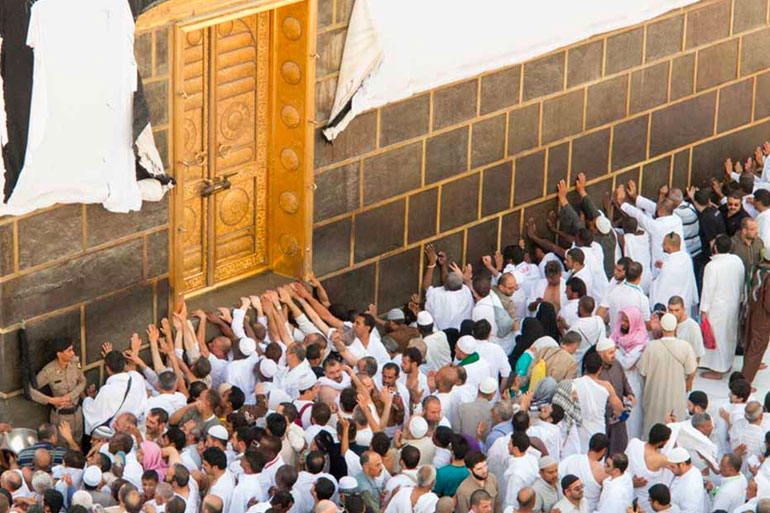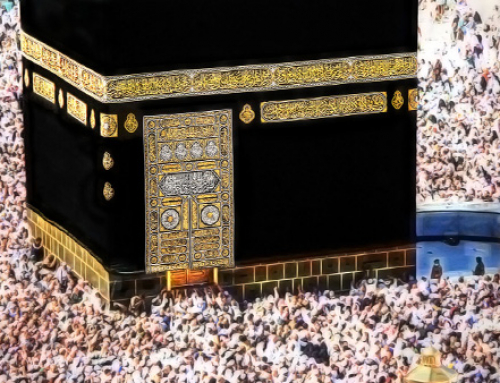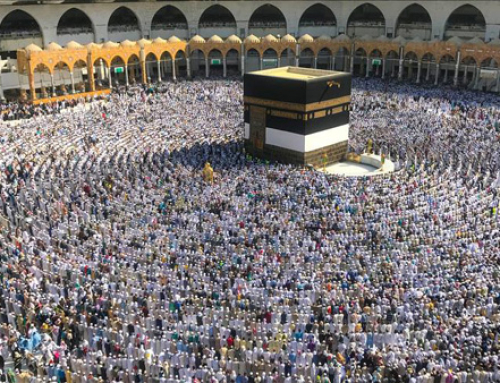Abu Haamid al-Ghazaali
October 19, 2014
4. As for the severance of relations this means restitution for all injustices and sincere repentance before God Most High for all sins. Every injustice is a relation and every relation is like a creditor present [before the pilgrim] clinging to his neck, crying out [to those around him], saying, “Where are you headed? Are you going to the palace of the King of kings while you are neglecting His affair in your house, despising and neglecting Him? Are you not ashamed to go to Him as a disobedient servant would go to Him, Lest He rejects and not accept you? If you desire to have your visit accepted let His orders be executed, denounce all injustice, return to Him [by rejecting] all sins, severe your heart from all, turning back to what is behind you, so that you will be facing Him with the face of your heart as you are facing His House with the face of your exterior. If you do not do that, you gain nothing from your journey except, firstly, toil and unhappiness, and then ultimately expulsion and rejection.” Let [the pilgrim] severe all relations, with his country in the same manner as one who departs from his country assuming that he will not return. And let him write his will to his children and family, for the traveller and his wealth are in danger except for that which safeguarded by God Most High. When severing his relations for the Pilgrimage journey, let him reflect on the severance of relations for the journey to the Last Abode, for [that journey] is before him and the journey he is undertaking is an expectation that the [last] journey will be made easier, for that journey is to an [everlasting] abiding place to which all things return. Therefore, it is not proper to ignore that journey while preparing for this one.
5. As for the provisions: let the [pilgrim] seek his provisions from a legal source; and if he senses within himself any desire for an abundance [of provision] or seeks that will remain throughout the duration of his journey and will not spoil or change before the destination is reached, let him remember that the journey to the Last Abode is much longer than this journey, and that the provisions for it is piety. Whatever he thinks to be his provisions other than piety will remain behind him after death and disaappoint him. It will not remain with him. Therefore, let him beware lest those actions which are to be his provisions to the Last Abode not accompany him after death, being spoiled by the stains of hypocrisy and the contamination of negligence.
6. As for the riding beasts when [the pilgrim] has fetched it, let him thank God Most High whole heartedly for having subjected the beast to him in order to bear his affliction for him and to alleviate his hardship, and let him remember at that time the mount that he will ride to the Last Abode; it is the bier on which he will be carried [after death]. For the Pilgrimage is somewhat parallel to travelling to the last Abode. let him reflect on whether his journey on this riding beast will be a suitable Provision for him on that journey [i.e. the journey to the Last Abode] on that riding beast [i.e. the funeral bier]. How near it is to him! For all he knows death may be near at hand, and he may ride mounted on the bier before [he has the chance] to ride mounted on the camel. That one will [someday] ride mounted on a bier is certain, while it is not certain that one can facilitate the means of travelling. How can one [llow oneself] to take precautions with regard to the means of travel, which are doubtful, and obtain provisions and a riding beast while neglecting [to prepare oneself for] the travelling which is certain ?





